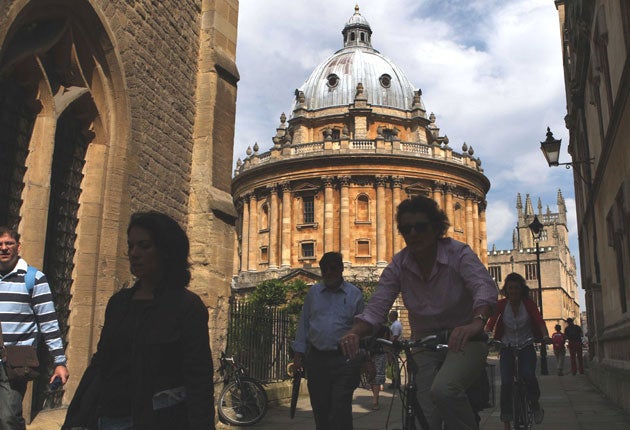Millionaire stole priceless pages from Bodleian's rarest books
Thefts committed over eight years left manuscripts irreparably damaged

A millionaire Iranian businessman stole pages from priceless, centuries-old books at the British Library so that he could add them to his own collection and improve his copies of the same manuscripts.
Farhad Hakimzadeh, 60, spent eight years carefully cutting out pages and maps from up to 150 rare books, some of which dated to the 16th century. As well as at the British Library, Hakimzadeh carried out similar thefts at the Bodleian Library in Oxford. The damage is estimated to be worth £1m, but experts say it could be much higher.
It is thought he managed to carry out the thefts between 1997 and 2005 by sneaking a scalpel into the library's reading rooms, positioning himself out of the sight of the CCTV cameras and avoiding the detection of the plain-clothes guards on patrol. There, he would steal pages to replace leafs of his own books that were missing or damaged.
Hakimzadeh, the chief executive of the Iran Heritage Foundation and a respected scholar and author, was only caught when another library user noticed that a page of a 17th-century book by the traveller and historian Sir Thomas Herbert was missing.
Library staff determined that Hakimzadeh had previously read the book and began trawling through his library records to see which other books he had read during the eight years he had been a library member. They went through all 842 books listed and found 150 had pages missing.
Scotland Yard was alerted and when officers searched Hakimzadeh's £3m Knightsbridge flat they found the missing pages inserted into his copies of the same books.
Originally he claimed he had bought the books from second-hand market stalls but when police returned to search his flat for a second time, they took a British Library official who could identify the missing pages.
Hakimzadeh was charged in September 2007 and has pleaded guilty to 14 counts of theft with another 20 charges still to be taken into account. He will be sentenced today at Wood Green Crown Court and he faces prison.
Dr Kristian Jensen, the head of British collections at the library, said that the books from which Hakimzadeh had stolen were mainly about the British colonisation and exploration of the Middle East. He said that the thefts were the most damaging the British Library had suffered.
"He is an expert in his field and a published author. He has a profound knowledge of the field so in a sense, from my point of view, that makes it worse because he actually knew the importance of what he was damaging," Dr Jensen said.
"Obviously, I'm angry because this is somebody extremely rich who has damaged something which belongs to everybody, completely selfishly destroyed something for his own personal benefit. And a historic object, once damaged, is damaged forever. You cannot undo that. There will now forever be a signs on these books that show something has happened to them." Dr Jensen added that, as well as the criminal action relating to 10 of its books, the British Library was now pursuing a civil action against Hakimzadeh.
Detective Chief Inspector Dave Cobb, of the Metropolitan Police, said: "The British Library and the Bodleian Library are relieved that Hakimzadeh has admitted his guilt and brought this matter to a close.
"It proved extremely difficult for the libraries to detect the absence of these pages as Hakimzadeh took care to select material that only an expert would be able to identify.
"He chose unique and rare editions and was therefore able to go undetected for some time. Following the discovery of damage to one volume, an audit of Hakimzadeh's activities at the libraries revealed the extent of his offending. Some of the stolen pages were recovered at his home address but many more have been lost forever."
